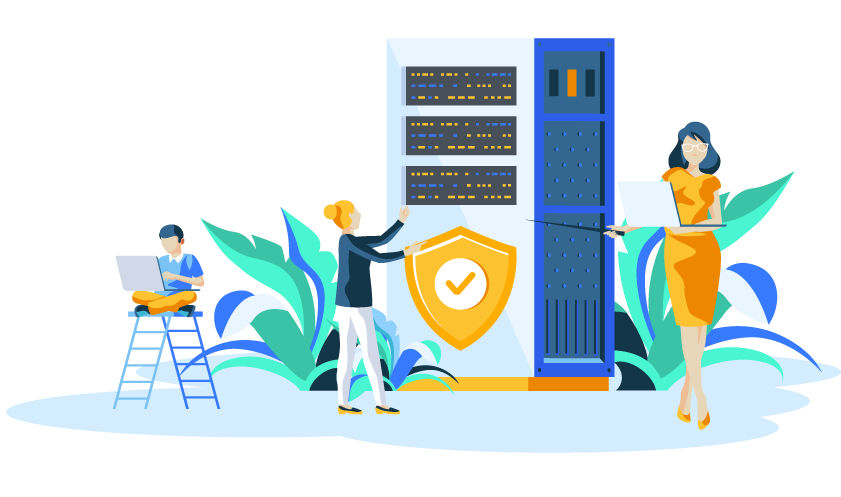In today’s digital world, protecting your data, systems, and networks has never been more critical. With increasing reliance on online operations, the risk of cyber threats is growing rapidly. So, what is cyber security, and why should it matter to your business?
At Invicta Linux, we help organisations secure their digital infrastructure by implementing robust cyber security strategies tailored to their unique needs. In this post, we’ll explain what cyber security is, explore its importance, and offer insight into how businesses can safeguard themselves from evolving threats.
Defining cyber security
So, what is cyber security exactly? Cyber security refers to the practice of protecting systems, networks, software, and data from digital attacks. These attacks—commonly referred to as cyber threats—aim to access, disrupt, steal, or destroy information, often for financial gain or malicious intent.
Cyber security is a broad field that encompasses various technologies, processes, and best practices. It includes everything from securing your email and cloud storage to protecting against ransomware, phishing, and more sophisticated advanced persistent threats (APTs).
Why cyber security matters to your business
No matter the size or industry, every business is a potential target for cyber criminals. The consequences of a successful cyber attack can be devastating—ranging from financial loss and operational downtime to long-term reputational damage.
Here are just a few reasons why cyber security should be a top priority:
- Data protection: Safeguarding sensitive customer, employee, and company information is crucial to maintaining trust and complying with regulations like GDPR or ISO/IEC 27001.
- Business continuity: A single breach can interrupt your operations for hours or days, impacting productivity and profits.
- Regulatory compliance: Many industries are required to meet specific standards to avoid legal penalties.
- Brand reputation: News of a breach can cause lasting harm to your company’s image and customer confidence.
Key components of cyber security
When answering the question of what is cyber security, it’s important to understand the components that make up a strong defence strategy. These typically include:
1. Network security
This involves protecting internal networks from intrusions and threats. Firewalls, intrusion detection systems (IDS), and virtual private networks (VPNs) are common tools used to monitor and control access.
2. Application security
Every software application your business uses needs protection. Security measures are built into apps during development to prevent vulnerabilities that hackers could exploit.
3. Endpoint security
Laptops, desktops, mobile devices, and other endpoints can be weak links. Endpoint protection ensures each device connected to your network is monitored and secure.
4. Data security
Encryption, backups, and secure data storage solutions help protect the integrity and confidentiality of business data.
5. Identity and access management (IAM)
IAM ensures only authorised users can access certain resources. Techniques like multi-factor authentication (MFA) and role-based access controls are common in this area.
6. Cloud security
With more organisations migrating to cloud services, protecting cloud environments has become vital. This involves securing cloud applications, platforms, and infrastructure.
Common cyber threats to watch out for
Understanding what is cyber security also means being aware of the types of threats you’re up against. Some of the most common cyber threats include:
- Phishing: Deceptive emails or messages designed to trick users into revealing personal information.
- Malware: Malicious software such as viruses, trojans, and ransomware that can damage or gain control of your systems.
- Ransomware: A form of malware that locks files or systems until a ransom is paid.
- Denial-of-service (DoS) attacks: These overwhelm your servers, making systems unavailable to users.
- Zero-day exploits: Attacks that target software vulnerabilities before developers can patch them.
Best practices to enhance your cyber security
To reduce your risk, follow these practical steps:
- Train staff on security awareness and phishing prevention.
- Use strong, unique passwords and enable MFA across accounts.
- Keep all systems and applications up to date.
- Conduct regular security audits and risk assessments.
- Backup data regularly and store copies offsite or in the cloud.
- Work with a trusted cyber security partner to develop and manage your strategy.
How Invicta Linux can help
At Invicta Linux, we understand the complexity of defending against modern cyber threats. Our team of experts works closely with clients to provide customised cyber security solutions, from system hardening and penetration testing to secure infrastructure management and incident response.
Whether you’re a growing SME or an established enterprise, our goal is to keep your digital operations secure, compliant, and resilient.
Final thoughts
To sum it up, what is cyber security? It’s the backbone of your digital safety—ensuring your business is protected against the growing tide of online threats. As attacks become more sophisticated, having a comprehensive, proactive approach to cyber security is no longer optional; it’s essential.
Let Invicta Linux help you build a secure future. Contact us today to learn how we can strengthen your defences and give you peace of mind in an increasingly connected world.




